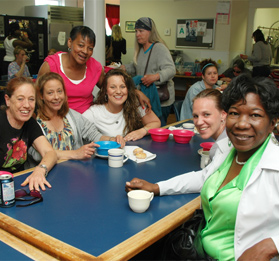Spiritual Warfare Prayers
One of the most important aspects of Prayer is Spiritual Warfare. The Bible tells us that we are in the midst of a Spiritual battle, and our advisory the devil is like a roaring lion seeking to destroy our lives. Paul says,
We do not wrestle against flesh and blood, but against the rulers of the darkness of this age, against Spiritual hosts of wickedness in the heavenly places. Ephesians 6:12

Satan and his forces of darkness are trying to destroy your life, and it is imperative that we learn to pray against these forces of darkness in order to gain victory in our lives.
1. I arise today with the power of the Lord God Almighty to call forth the heavenly host, the Holy angels of God, to surround and protect, and cleanse with God’s Holy light
all areas vacated by the forces of evil. I ask the Holy Spirit to permeate my mind, heart, body, soul and Spirit , creating a hunger and thirst for God’s Holy Word, and to fill me with the life and love of my Lord, Jesus Christ.
2. We use every verse in the Holy Bible that wars against the demonic forces. We bind and loose spirits. We tear down strongholds. We command civil war in Satan’s Kingdom. We loose the Love of God, Price that Jesus Paid, Holy Spirit, Word of God, Blood of Jesus and Cross of Jesus against the forces of evil. All these things we do in the name of Jesus Christ , our Lord, Master and Savior, and for the Holy Trinity.
Spiritual Warfare Prayers Read More »




 people prefer the ‘good old days’ when they were more compliant and self-sacrificing. Unpleasant emotions, once medicated with addictive substances or processes, may be experienced as threats to relationships that have adapted over the years to the insanity of addiction. Some people in recovery experience hostility when they start telling the truth in social systems which have been committed to silence for generations. Other people experience shame and rejection when people are skeptical about or merely uncomfortable with the changes that recovery brings.
people prefer the ‘good old days’ when they were more compliant and self-sacrificing. Unpleasant emotions, once medicated with addictive substances or processes, may be experienced as threats to relationships that have adapted over the years to the insanity of addiction. Some people in recovery experience hostility when they start telling the truth in social systems which have been committed to silence for generations. Other people experience shame and rejection when people are skeptical about or merely uncomfortable with the changes that recovery brings.
 families. They can be excellent examples for mission clients and usually have special compassion and understanding for those who are still hurting. On the other hand, some are hindered in their efforts to minister to others because of their own codependency.
families. They can be excellent examples for mission clients and usually have special compassion and understanding for those who are still hurting. On the other hand, some are hindered in their efforts to minister to others because of their own codependency.
